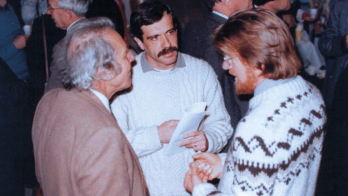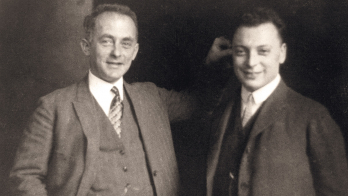By Roberto Mangabeira Unger and Lee Smolin
Cambridge University Press
Hardback: $20
E-book: $17

This is a book on natural philosophy, a field that the authors argue, and convincingly so, has not had much activity for a long time. It is definitely not a popularisation, although it is written clearly enough (and free of equations) that it should be accessible to most knowledgeable readers.
In many ways, this is two books: one of about 350 pages by Unger, a philosopher, and another of about 150 pages by Smolin, a physicist, each presenting overlapping but often dissenting views, together with a discussion of these differences. This means one can be quite comfortable reading it and agreeing or not, as each point is raised.
Perhaps the key idea is that history might play a role in determining why the universe is the way it is, in as fundamental a way as history determines much of biology. This takes on many of the fundamental assumptions that go into cosmology and physics, including the idea that the “laws” of physics are somehow hard-wired into the universe and that they could conceivably evolve. Indeed in biology, the laws that govern biology emerge as the space of living things evolves. This puts causal connections in the driving seat and is akin to taking the Darwinian viewpoint in biology over the creationist myth. A new view emerges on why things are the way they are – an alternative to some hypothetical “elegant(?)” future derivation of why, for example, masses and couplings are what they are.
The authors eschew some ideas that often occur today, including that of there being a multiverse with ourselves being in but one (the “singular” in the title means there is just one), and the idea that time is somehow not real and leading to a genuine history. They even argue that mathematics may not merit the (“prophetic”, as they put it) role that we often give it.
It’s a hard book to put down. Whether or not one agrees with the points that are raised, the book is nothing if not thought-provoking, and the ideas could well be revolutionary.








